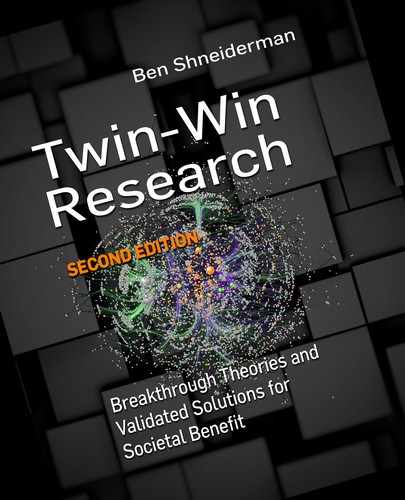Book Description
The thrill of discovery and the excitement of innovation mean that research is often immensely satisfying. But beyond the personal satisfaction, the goal of research is to improve the lives of people everywhere by driving revolutionary advances in healthcare, education, business, and government. This guidebook's strategies will help you shape your research and energize your campus so as to achieve the Twin Win: a breakthrough theory that's published and a validated solution that's ready for dissemination.
The action-oriented paths in this guidebook resemble a backpacker's guide to hiking. It suggests paths and gives you enough information to get started, while providing enough flexibility to take side treks and enough confidence to find your own way. Short-term projects include inviting speakers to campus, choosing appropriate research projects, and developing networking skills. Middle-term include seeking funding from government agencies and philanthropic foundations, sharpening your writing and speaking skills, and promoting teamwork in research groups. Long-term missions include changing tenure policies, expanding collaboration with business and civic partners, and encouraging programs that combine theory and practice.
